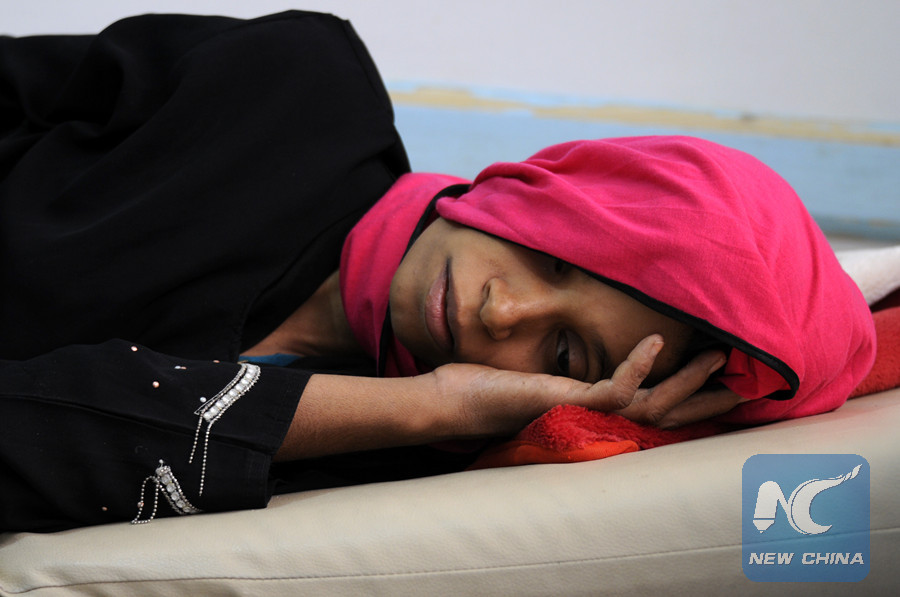
A cholera-infected woman receives treatment at a hospital in Sanaa, Yemen, on July 11, 2017. Cholera disease has infected more than 300,000 people in war-torn Yemen since late April, the international Committee of the Red Cross (ICRC) said on Monday. (Xinhua Photo)
SANAA, July 14 (Xinhua) -- The death toll from cholera outbreak in war-ravaged Yemen has increased to 1,759 since end of April, the World Health Organization (WHO) said on its official twitter account on Friday.
The suspected cases have increased to more than 332,600 as the epidemic has hit 21 out of the 23 provinces in the country, WHO said.
The death toll has increased by 53 and suspected cases by nearly 35,162 in just five days after a July 9 report by WHO, where it put the death toll at 1,706 and suspected cases at 297,438.
Since April 27, the cholera cases in Yemen have been "increasing at an average of 5,000 a day," said WHO in its last week report. "We are now facing the worst cholera outbreak in the world."
On Tuesday, the UN humanitarian coordinator for Yemen, Jamie McGoldrick said in a press conference that the cholera is "entirely man-made as a result of the conflict."
He noted that the UN's response failed to keep pace with the cholera spread mainly because it "did not have enough resources to expand their operations into areas, where health workers were working without pay."
"Unless the international community contributes 200 million U.S. dollars to address the cholera outbreak in Yemen, the UN aid agencies will be forced to reprogram more resources tagged for malnutrition in the country," McGoldrick said.
Meanwhile, WHO said it's considering shelving the shipment of cholera vaccines to Yemen.
"A vaccination way ahead of an outbreak would be useful, but that would imply a huge amount of vaccines, taking into account all the countries where cholera was endemic," WHO Spokesman Christian Lindmeier was quoted as saying.
More than three years into war, Yemen is facing a total collapse, where two thirds of the total population, around 19 million, need humanitarian aid. About 10.3 million people are at risk of famine and 14.5 million lack access to safe drinking water.
Fewer than 45 percent of the country's hospitals are operational, but even the operational ones are coping with huge challenges, especially the lack of medications, medical equipment and staff.
The blockade on Yemen, as part of a Saudi-led bombing campaign launched in March 2015, has deepened the crisis in the country which used to import most of its basic needs.
The war has pit the Iranian-allied Shiite Houthi rebel movement against a Sunni Saudi-led military coalition, after Houthis toppled Saudi-backed President Abd-Rabbu Mansour Hadi and his government in late 2014.

